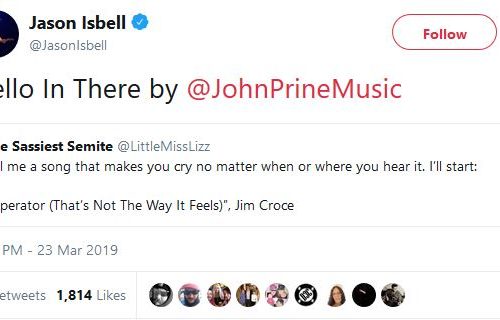There’s debate going on at Comment is Free about proposals to extend the term of copyright in sound recordings from 50 to 95 years. Simply Red singer Mick Hucknall argues that copyright is “fundamentally socialist”, that it “promotes artistic creativity and the free circulation of ideas”, and that “arguments against the extension of the copyright term in sound recordings from 50 to 95 years are retrogressive and misconceived”. As you might imagine, a multimillionaire rock star with close links to New Labour isn’t going to be the most sympathetic or appealing figure to CiF readers, and he gets predictably mauled in the comments, partly for being, to quote one commenter, “a rich, fat, ginger musician on a major label”, but also for more substantial reasons. For a start, it’s not wholly accurate to argue that the copyright in sound recordings “promotes artistic creativity”; a sound recording is a particular version of a song, which exists independently of the words and melody of the song itself, whose copyright is protected for 70 years after the author’s death. So in the case of, for example, Westlife’s “The Love Album“, the copyright whose extension Hucknall is proposing isn’t that which applies to the writers – ie the creators – of any of the songs; it’s for Westlife’s own recordings of them. In which case it’s hard to justify extending this term to 95 years in order to swell the bank accounts of Westlife and whatever offspring they might choose to foist on an unsuspecting world.
While Andrew Brown agrees with Hucknall that copyright in itself is a good thing, he argues that it doesn’t necessarily therefore follow that the longer the term, the better: “If I drink a glass of wine the effect is entirely good. If I drink half a bottle, the effect is generally good. It doesn’t follow that drinking two bottles will solve every problem. Yet that is the way that Mick Hucknall argues in his plea for copyright extension”. He also points out that “hardly anyone sells in large quantities 50 years after the recording was made…Those artists (that do), of course, are the ones who don’t need the money. It’s not a coincidence that the most prominent campaigner for copyright extension in this country is Cliff Richard”. Sir Cliff has indeed campaigned for an extension to 95 years, arguing that while he might not personally need the money, many musicians rely on royalty payments as a “pension”, and that “it seems terribly wrong that 50 years on they lose everything from it”. Well possibly, although his case might have appeared more selfless had he not begun to make it a couple of years prior to “Move It” going out of copyright.
Author/boffin Charles Leadbetter also agrees that copyright is a good thing, arguing that “a creative economy depends on a delicate mixture of being able to share ideas and exploit or even own them”, but adds that “the case for this extension is largely made by large music companies that want to shore up their business models and profits”. And this is where the CiF commenters come into their own – Mick Hucknall is “a front for the nasty Recording Industry”, record companies are “evil corporations”, copyright is “a monopoly enforceable by law and the repressive means of the state”, its term should be reduced to 10 years, or 5 years or abolished altogether. Well as someone who happens to know a little bit about the nasty Recording Industry, and more importantly as a music fan, to this I say: bollocks. I know of plenty of recording artists, none of whom are millionaires, who’ve relied on the occasional modest royalty cheque to pay for their family’s funeral expenses or to repair their (small, hurricane-damaged) homes, and who would be denied an income should copyright be abolished. I’m also sure that without the guarantee of a long-term return on their investments the evil corporations who released most of the albums I own would have thought twice about whether it was worth it. Mercury Records wouldn’t have flown Dusty Springfield to Muscle Shoals Studios to record Dusty In Memphis, Capitol wouldn’t bothered hiring the arrangers and musicians who worked on any of Frank Sinatra’s 1950s albums, and EMI would have told the Beatles to sling their hook when they suggested having an orchestra on A Day In The Life.
95 years is too long, but copyright is a good thing, no matter how rich, fat or ginger Mick Hucknall is. On which subject, here as a special Friday treat is the video for “Ginger” by the quite magnificent David Devant & His Spirit Wife:


